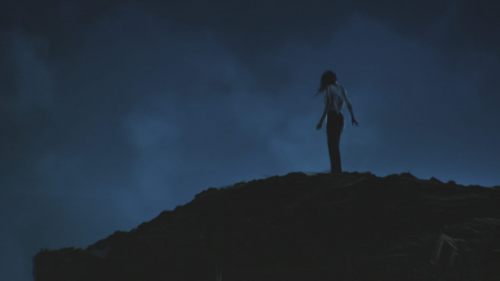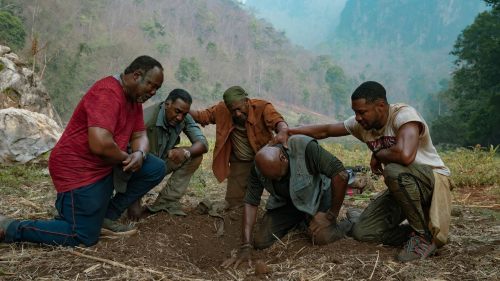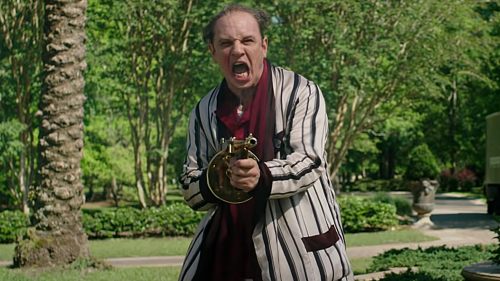Cannes 2018 Review: BLACKkKLANSMAN Is Funny, Infuriating Agitprop
BLACKkKLANSMAN, Spike Lee’s incendiary retelling of an unlikely operation in which a black cop and his Jewish partner successfully infiltrated the Colorado Springs chapter of the Ku Klux Klan, starts and ends with other men’s handiwork. There were audible gasps in the audience at the Cannes Film Festival when a tableau of carnage from Gone with the Wind’s “Battle of Altanta” scene blinked onto the screen, and quiet sniffles as a gut-churning montage of real-life hatred from the past two years closed it out. With this fiery work of righteous agitprop, Lee’s chosen task is to connect the rose-colored racism of the remote past to the shameless bigotry playing out on the streets of our immediate present.
He does so by splitting the difference and slipping back to the ‘70s, the era of perfectly manicured Afros, wide lapels, the greatest pairs of sunglasses ever forged, and a time in which the America’s social tides turned more violently than ever. It is in this combustible cultural moment that Lee launches his most charged rhetorical offensive since the live-wire Do the Right Thing, a call to action that doesn’t use its generous entertainment value to take the edge off of its fury, but rather to further sharpen it.
Our man on the inside is Ron Stallworth, portrayed with a muted swagger and carefully honed white-person voice by John David Washington. (Yes, he’s Denzel’s son, but his disciplined self-regulation is very much distinct from the volatile charisma that defined his father’s early career.) A rookie exiled to record-room detail, he figures he can kill two birds with one stone by going undercover with the help of Phillip “Flip” Zimmerman (Adam Driver, his natural low-key ease a life-saving asset among the Klansters); he can be the real cop he’s always dreamed of being and start making strides to reduce discrimination in the department as well as the community. His activist love interest Patrice (Laura Harrier) warns him that affecting change won’t be so easy, and Lee tacitly agrees with her. Ron and Flip’s mission, successful as it may have been, was ultimately Pyrrhic in its victory. Nobody’s all-better-now, look-how-far-we’ve-come fantasies will be indulged.
Lee takes an aggressive, unsubtle approach to the material, as it calls for, but doesn’t let his gig as propagandist detract from his talents as a visual stylist, a humorist, and a film artist. The absurd irony of a proud black man spewing invective from the safe remove of a phone call pairs its comedy with the ever-present undercurrent of queasiness tied to the repulsive words and images that linger from scene to scene. (As Grand Wizard David Duke, duped by Ron’s impression of a Caucasian, Topher Grace is almost troublingly perfect.) Lee fully integrates his thematic agenda with his aesthetic one, his radicalism all the more subversive for its cloaking in a broad, Hollywood-style mainstream. The signature conveyor-belt shot, when it finally arrives, is as cathartic as any thrown punch or hurled bottle.
BLACKkKLANSMAN is not “the film we need right now,” because as my wiser colleagues have already noted, what we need now is meaningful action in our flesh-and-blood dimension. But Lee’s provocations make a crucial motion towards the point at which grave injustice can no longer be muted, shunted aside, or ignored. That a political statement so unshy about black anger and white complacency would enter a wide release in American cineplexes feels like a coup in and of itself. Right fuckin’ on.



